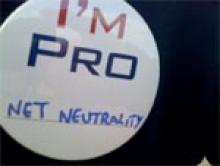Citibank Finally Files Suit Against Burlington Telecom
After more than a year of expecting Citibank to file suit against Burlington, they finally did. Burlington Telecom, a muni FTTH network, now illustrates the worst case scenario for muni broadband. After the founder of the network left following disagreements with the Mayor, the Mayor's Administration ran the network into the ground (leading us to recently publish the report "Learning from Burlington Telecom: Some Lessons for Community Networks."
Burlington had financed its network with a municipal capital lease, rather than the more commonly used revenue bonds, meaning that the actual network secures the loan. In this arrangement, the network is technically owned by the lender (Citi) and Burlington leased it. So when Burlington decided to stop paying the lease for the network, it became Citi's problem.
And Citi had a lot of problems due to the games massive banks were playing having killed the economy. BT became just one more non-performing asset. They did nothing while the City continued to run the network without making lease payments. Now Citi is suing for the world (this is how these things work) but it isn't clear that Citi can actually get what it demands (the State has a say in whether the network simply gets shut down, which Citi is presently asking for). And if the network did get shut down, Citi would be in a worse position to recover any of its losses because the value of the network is far greater than the sum of its parts.
State law says that losses from a public telecom venture cannot be carried by taxpayers, which is where we return to an interesting document prepared by the Mayor's Administration.



